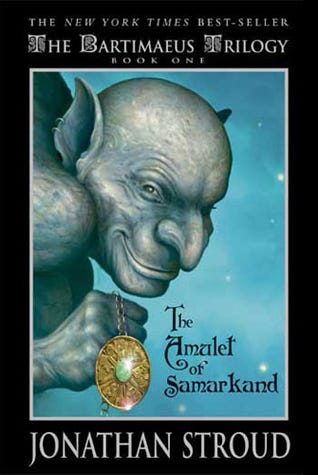3 Fantasy Fiction Books That Delve Deep Into Human Psychology
Who says you only need to read non-fiction to understand how the human mind works?

Who says you only need to read non-fiction to understand how the human mind works?
I love fantasy fiction for two main reasons.
First, most of the books aren’t standalone, but parts of a series. This allows you, the reader, to spend a lot of time with the characters. You get to watch them grow, overcome challenges and evolve as the situations shape them.
You laugh with them as they conquer new lands, cry when they lose battles and feel your heart race when they are about to set on yet another new quest.
Second, since the world is completely fictional, the authors have greater freedom to play with scenarios. Mass annihilation, mind control, gender and race-based violence — anything that readers might be too uncomfortable reading in a real-world setting can be explored in a make-believe world.
Fantasy authors can really explore the intricacies of the human mind without having any of our world’s “rules” to hold them back.
The freedom to play with emotions and create complex situations the characters are forced into is what enthralls me and makes me keep coming back to the genre.
I’ve learned so much about human psychology from fantasy fiction, and in this post, I’m listing three books with the most convoluted moral dilemmas I’ve ever encountered.
I believe the best kind of fiction is not something that’s totally unique or different from everyday life. The best kind of fiction that leaves its mark is the one that could have happened to just about anybody. That’s what makes it so spine-chilling.
Read on for a list of three of the most delicious fantasy fiction series that have taught me more about human psychology than any non-fiction book ever could.
(Note: The links mentioned in this article are affiliate links. If you choose to purchase these books through them, it will help me earn a small amount — at no extra cost to you. Thanks!)
1. The Gameworld Trilogy by Samit Basu

I love fantasy and was super intrigued when I came to know an Indian author had written an epic fantasy series. I started the first book fully prepared to be disappointed, but the first few chapters had me enthralled.
With stunning world-building, amazingly fleshed-out characters, and epic battle scenes to take your breath away, this series has all the makings of a story that will stand the test of time.
The premise is surprisingly philosophical. There are several allusions to the real world, but the thread that runs through the whole series is that of duality — or the lack of it. When we read a story, we often crave duality: the existence of good vs evil and the need for one to triumph over another.
In the Gameworld trilogy, there’s no global duality that applies to everyone. It’s more like a game of chess, with every character having their own color and different agendas and moves. In the end, all the players have one common goal: they want to survive.
There is duality, yes, but on infinite smaller planes.
That’s what makes this series so different from your usual fantasy trilogies.
The important question
If you knew the world as you know it was ending and there’s nothing you could do to stop it, would you take a break and enjoy your remaining days, or would you die trying to change what’s been predestined?
The books place this knowledge on the shoulders of several characters in different parts of their journey around the fictional world. As expected, each character reacts to the knowledge differently. It’s fascinating to watch how the story unfolds, and how this knowledge burdens those powerful enough to think they matter, but actually don’t.
2. The Bartimaeus Trilogy by Jonathan Stroud

Nathaniel, a young magician’s apprentice is treated badly by his foster family. He is tired of all the expectations on his frail shoulders and decides to take matters into his own hands.
With months of planning, plotting, and preparing in secret, Nathaniel sets out to perform the series of rituals that will summon the 5000-year-old extremely powerful djinni Bartimaeus, and tie him to his will.
What can go wrong with this perfect plan, right? As it eventually turns out, a lot of things do.
The important question
How far would you go to fulfill your ambition? And if that ambition is not to see great glory for yourself, but to save the world, would it be justified if you had to hurt others along the way?
What if the “others” here is your best friend who also happens to be the reason you’re in a position to make decisions that decide the fate of the world?
Would you hurt your closest friend to save the world? How far would you go before you decide it’s too much?
This brilliant trilogy by Jonathan Stroud places the two protagonists in deliciously twisted moral dilemmas that test them as nothing has. It’s fascinating to watch them react to situations we know we’d be completely lost in.
3. Malazan Book of the Fallen by Steven Erikson

Reading Malazan takes massive commitment — there are ten books in total, each spanning 1000 pages or more — but I strongly believe every fan of high fantasy must read this series.
The plot is so diverse and all-encompassing, that I couldn’t summarize it in a few words if I tried. But this fantasy fiction series singlehandedly taught me more than any self-help book ever could.
I also love it for the intricately detailed world-building, which is perhaps to be expected, as the author is formally trained as an archaeologist.
The important question
Erikson does tremendous justice at showcasing the bests in human behavior — kindness, compassion, and pure, unadulterated love. He does not shy away, either, from showing the worst of the human flaws. There is rape, torture, cannibalism, incest, necrophilia, willful maiming, and genocide at such scales as to make one’s stomach turn.
There are so many moral dilemmas addressed in the ten books spanning this epic saga. But the foremost example is the T’lan Imass-Jaghut war in Memories of Ice (book three of the series).
Most of the Jaghuts are tyrants, enslaving millions of people and subjecting them to pain and untold horrors. The T’lan Imass see themselves as saviors of the people. They’ve been slaughtering Jaghuts for centuries, not even sparing the children. They can’t predict if every child would grow up to be a tyrant, but if they showed mercy now, they might cause great suffering to the world later in the form of yet another Jaghut tyrant.
The author neither justifies the actions of the T’lan Imass nor does he vilify them. The decision is left to us readers to decide for ourselves what we think of it.
The important question raised here has several implications: “Is what’s necessary always the right thing to do?”
Some more stories and fantasy recommendations you might enjoy:


For more book reviews, follow me on Goodreads.
